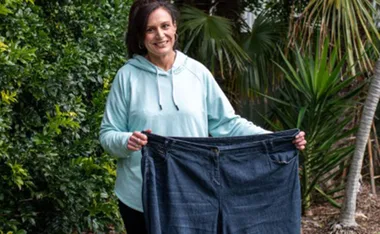Soft drinks are everywhere you look today. From vending machines to school canteens to TV ads or giant billboards as you drive to work, it’s hard for you (or your kids) to escape them. Recently, with concerns over childhood obesity, they’ve been deemed to be a bit too “cool for school” and most dentists will warn you of the effect of their acid and sugar on teeth. But what are the nutrition issues for adults? And what should you really choose to get your fizz?
Sickly sweet?
Soft drinks are the highest source of refined sugar (sucrose) in the diet of Australian children and increasing soft drink consumption has been linked to childhood obesity in one study. For adults, a can of regular soft drink can still be a big sugar load. On average you’re getting around 40g, or 10 teaspoons, of sugar per can alone. But it’s important to note that sugar is not ALWAYS bad.
The main concern with high sugar drinks like soft drinks is that they add kilojoules (and fluid) to your diet and not much else. Apart from an enjoyable sweet taste, you’re not getting any nutrients to speak of or any potent antioxidants. But it’s a myth that sugar causes diabetes and it can’t be blamed for the obesity epidemic. Sugar can certainly improve the palatability of highly nutritious foods like whole grains and is fine to have in moderation, especially if you are a healthy weight.
However, some soft drinks imported to Australia are sweetened with fructose (high fructose corn syrup) instead of sucrose. There are early concerns that a high intake of this type of fructose may lead to a greater storage of body fat according to studies performed on mice.
Are they safe?
There are many theories circulating on the Internet about the safety of alternative sweeteners in low sugar and diet soft drinks. These include scary tales of aspartame and cyclamate causing a range of health problems including cancer and multiple sclerosis. Plus, some studies have suggested that artificial sweeteners can increase appetite, but the evidence for this theory is inconsistent. All sweeteners used in soft drinks sold in Australia are closely studied, monitored and approved by Food Standards Australia New Zealand. Hundreds of scientific studies have looked into the lack of safety claims and to date they have been fully refuted.
Bone risks?
There are also studies showing that cola drinks may lead to a decrease in bone density in women. The researchers have found that this is not due to women having lower calcium intakes from less milk consumption or due to the caffeine in soft drinks causing bone mineral loss. It’s thought that it may in fact be due to phosphoric acid in cola drinks which is thought to interfere with bone absorption of calcium.
Top choice?
Water is still the one, however, with zero sugar and virtually no kilojoules, while diet or “no sugar” soft drinks are the best soft drink choices for anyone watching their weight. And remember that diet cola drinks still contain caffeine, so try not to overdo it.
You can check out the ingredient list on the label of any soft drink to find the types of sugars and sweeteners it contains.











